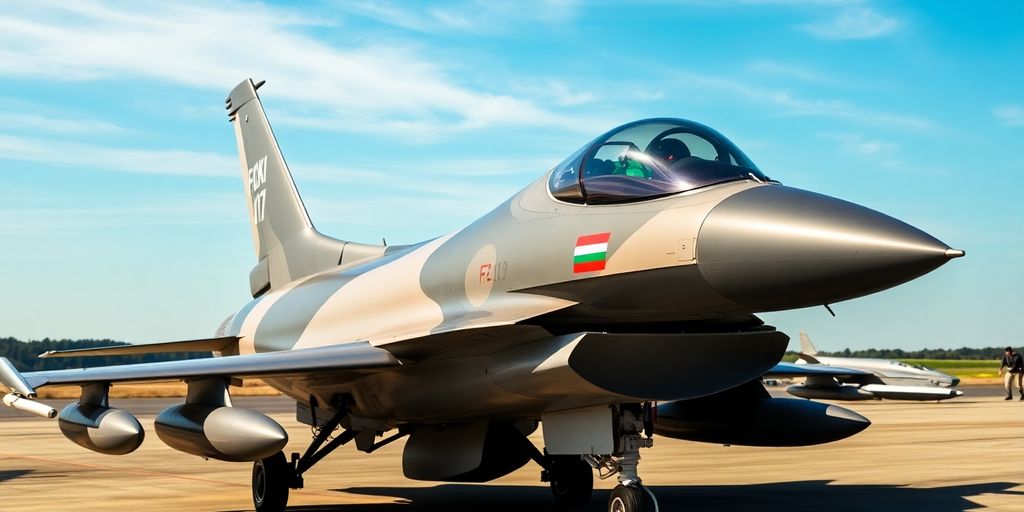Bulgaria has officially received its first F-16 Block 70 fighter jet, marking a significant milestone in the modernization of its air force. The delivery ceremony took place at Graf Ignatievo Air Base, attended by key officials from the Bulgarian Ministry of Defence and representatives from Lockheed Martin.
Key Takeaways
- Bulgaria has ordered a total of 16 F-16 Block 70 jets, with the first eight expected by the end of 2025.
- The F-16 Block 70 features advanced technologies, including AESA radar and enhanced avionics.
- This acquisition is part of Bulgaria’s efforts to modernize its military capabilities and strengthen NATO ties.
Significance of the Delivery
The arrival of the F-16 Block 70 is not just about acquiring a new aircraft; it symbolizes a strategic shift in Bulgaria’s defense posture. Prime Minister Rossen Jeliazkov emphasized that this event marks the "inexorable and irreversible modernization of the Bulgarian army."
U.S. defense officials also highlighted the importance of this delivery, stating that it will enhance Bulgaria’s security and contribute to NATO’s collective defense efforts.
Features of the F-16 Block 70
The F-16 Block 70 is equipped with state-of-the-art technology designed to improve operational effectiveness and safety. Key features include:
- Northrop Grumman APG-83 AESA Radar: Provides superior target detection and tracking capabilities.
- Advanced Avionics: Enhances situational awareness and mission effectiveness.
- Automatic Ground Collision Avoidance System (Auto GCAS): A safety feature credited with saving numerous pilots in critical situations.
- Extended Structural Service Life: Capable of operating for up to 12,000 hours, ensuring longevity and reliability.
Future Deliveries and Impact
Following the first delivery, Bulgaria is set to receive seven more F-16s by the end of 2025, with the remaining eight scheduled for delivery by 2027. This acquisition is part of a broader effort to replace Bulgaria’s aging fleet of Soviet-era MiG-29 jets, which have been plagued by safety issues and operational limitations.
The modernization of Bulgaria’s air force comes in response to evolving security challenges in the region, particularly in light of geopolitical tensions. The country has increased its defense spending to meet NATO’s guidelines, reflecting a commitment to enhancing its military capabilities.
Conclusion
The introduction of the F-16 Block 70 into the Bulgarian Air Force represents a significant leap forward in the country’s defense capabilities. As Bulgaria integrates these advanced fighter jets into its operations, it not only strengthens its national security but also reinforces its role as a key player in NATO’s collective defense strategy. This development is expected to foster closer military cooperation between Bulgaria and its allies, paving the way for enhanced security in the region.
Sources
- Bulgaria receives first F-16 Block 70 fighter jet, UK Defence Journal.
- Bulgaria receives first US F-16 fighter jet, Space Daily.
- Media – Lockheed Martin – Releases, Lockheed Martin.
- Bulgaria takes delivery of first F-16 Block 70 Fighter Jet, AviTrader Aviation News.
- Lockheed Martin Delivers First F-16 Block 70 Jet to Bulgaria, Lockheed Martin.






